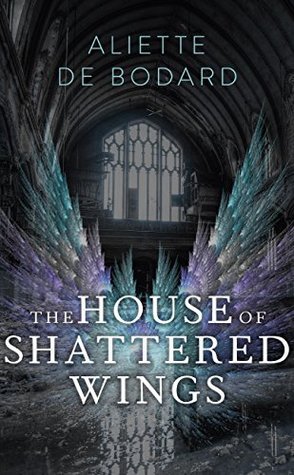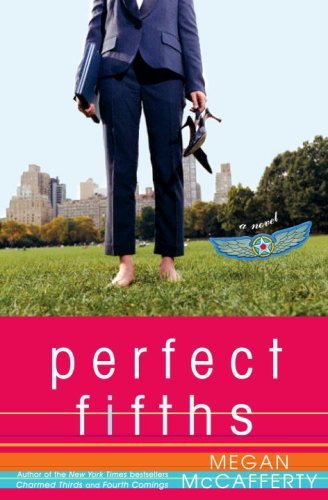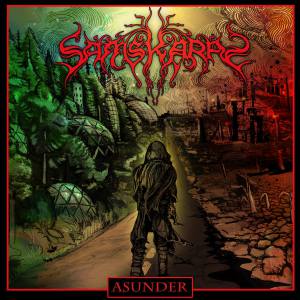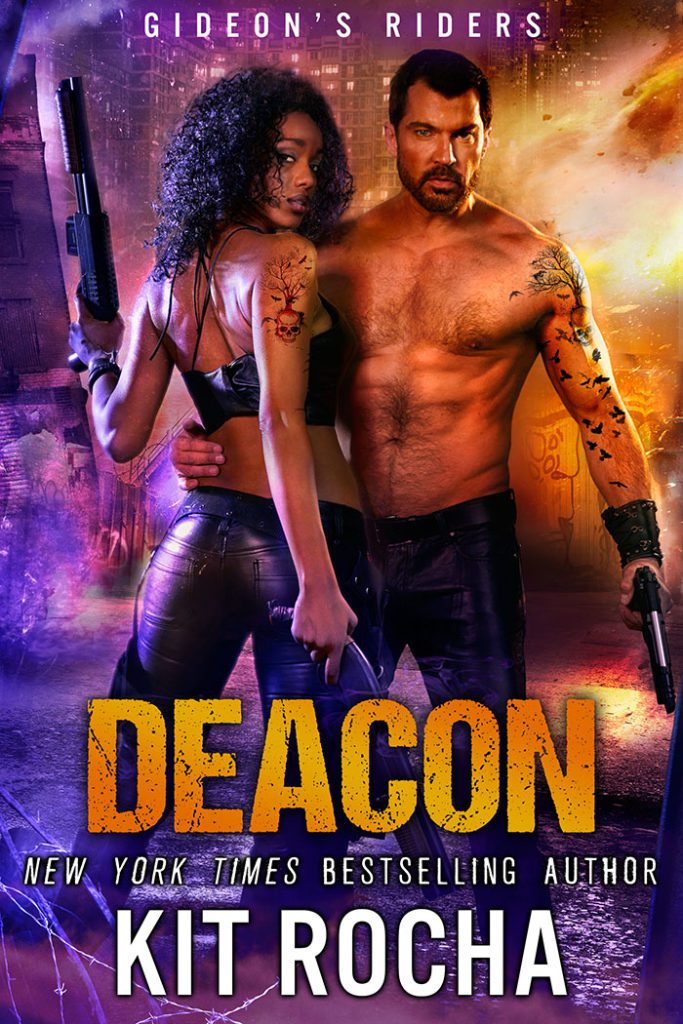The staff at Filmic Magazine is excited to present its third annual Top 10 feature! Over a period of one week, Filmic members were asked to submit ranked lists reflecting the very best 2016 films they saw. 21 lists were ultimately received and 66 titles of considerable diversity were named. The following is the final ranked aggregate.
HONORABLE MENTIONS
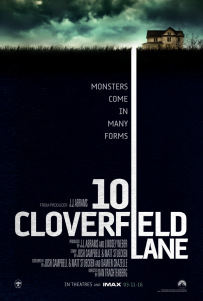 10 Cloverfield Lane (dir. Dan Trachtenberg)
10 Cloverfield Lane (dir. Dan Trachtenberg)
The greatest question a viewer may find themselves asking about a film’s characters is: “Who’s right?” 10 Cloverfield Lane not only makes you ask these questions, but begs you to ponder who you’d rather be right. With it’s incredibly intense performances from John Goodman and Mary Elizabeth Winstead, the characters never let the tension dissipate. Set almost entirely within a couple rooms, the film gives the audience time to explore these characters in extremely close proximity. A standout score and some of the year’s best sound design turns this drama into a Hitchcockian thriller with a sci-fi twist. This is a movie where every shot matters and every snippet of information is used to inform the audience. Films like this are simply not made anymore in the mainstream, so we must cherish anomalies like this when they pop up.
— Jon Roberts
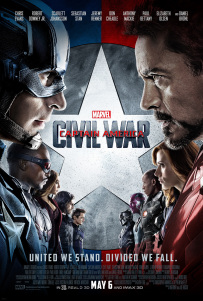 Captain America: Civil War
Captain America: Civil War
(dir. Anthony & Joe Russo)
Superhero films will sometimes find a contrived reason to have the protagonists punching each other, giving the audience little incentive to care about the chaos occurring on screen. The newest Captain America installment manages to avoid this issue by giving the heroes motivation to believe in their ideology, allowing more emotional depth to fuel the conflict. The film is also about more than just a battle between two ideologies. Captain America is more concerned with protecting his friends than opposing the “superhuman registration act.” And despite being the main antagonist, we are given a reason to sympathize with Tony Stark, who also wants protection. Because of this, the conflict is less black-and-white than it is in other superhero films. The movie balances its ensemble pretty well, with multiple superheroes getting a decent amount of focus without feeling too cluttered, and much like the previous Captain America film, Civil War has elements of a spy/espionage movie, which creates a grounded and gritty tone. It’s one of the few action films in 2016 that made me genuinely care about what was happening on screen.
— Kayla Hurowitz
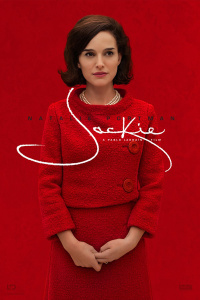 Jackie (dir. Pablo Larraín)
Jackie (dir. Pablo Larraín)
Pablo Larraín’s Jackie is a highly emotional biographical film that tells the story of Jackie Kennedy’s immediate reaction to the murder of her husband, President John F. Kennedy. What makes this film stand out in relation to other biopics is how well-paced it is. In most movies that deal with history, everything is presented in a highly linear manner. Sometimes this makes all of the events in the film seem rather jumbled. In Jackie, however, the pacing is just right because the film only focuses on one very specific piece of American history. Taking place over the course of just a few weeks, this film allows its audience to experience and dive into both the setting and the character herself. Natalie Portman is absolutely excellent in the role of the former First Lady. Unafraid to show her varied states of being, she is what truly grounds the film and makes it as human as possible. After all, isn’t history supposed to have a face?
— Haley Goetz
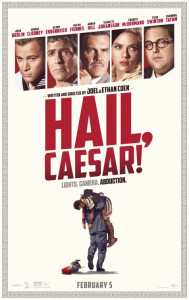 Hail, Caesar! (dir. Ethan & Joel Coen)
Hail, Caesar! (dir. Ethan & Joel Coen)
Hail, Caesar! is a comedy, but it borrows its plot from film noir. When the leading man of a religious epic titled “Hail, Caesar! A Tale of the Christ,” is kidnapped by communist academics, it’s up to the studio fixer, Eddie Mannix (Josh Brolin), to rescue him and sort out the tangled mess that is his 1950s Hollywood studio, Capitol Pictures. Mannix goes from film set to film set, addressing each fragile operation in an effort to keep the studio running. The Coen Brothers use this subtle technique of genres-within-genres to look at the greater story of one man who has to take on the sins of the actors and rescue them from torment, by the orders of the the big man upstairs: the studio executive. Mannix walks a tightrope, balancing actors and tabloids, business and religion, the banal threat of communism and the unpredictability of capitalism. The film is ultimately about faith, and it’s through the best possible lens — the lens of genuine light-hearted comedy.
— Sam Archie
THE TEN
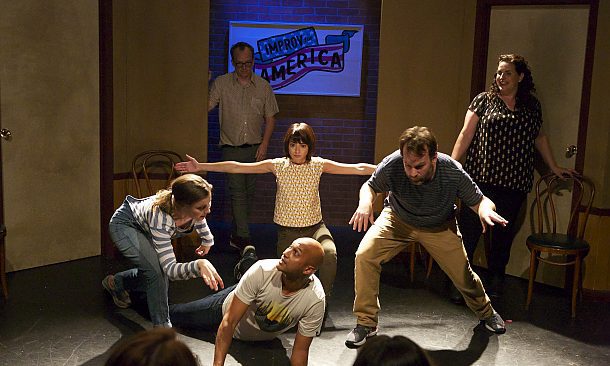 10. Don’t Think Twice (dir. Mike Birbiglia)
10. Don’t Think Twice (dir. Mike Birbiglia)
There’s a moment about a third of the way through Don’t Think Twice where with just one cut, a funny joke about narcissism turns into an impossibly sad statement about jealousy. It’s a moment that caught the audience off-guard both times I saw it in theaters. When you walk into a movie made by comedians, you don’t expect to walk out of it reevaluating your relationships. I can imagine audiences in 1977 felt something similar watching Annie Hall for the first time.
The film follows what happens to a struggling improv group when two of its members get auditions at a Saturday Night Live-type show. When this happens in most movies, everyone’s happy that they’re friend and colleague is moving on to bigger and better things. But Don’t Think Twice is not like most movies. It’s much more realistic and much too smart to take that approach. Instead, resentment kicks in and strains the group’s relationship. It absolutely nails what it’s like to have friends who are more successful than you – especially when they’re achieving your dreams. It isn’t a dour film, though. Mike Birbiglia and co. bring some big laughs throughout, but they never lose sight of the movie they’re making. It’s a comic drama where the jokes strengthen the drama rather than distract from it. Birbiglia is a great comedian, but if he takes the Woody Allen route and abandons stand-up altogether to make films as good as this, I don’t think there’ll be too many complaints.
— Austin Gold
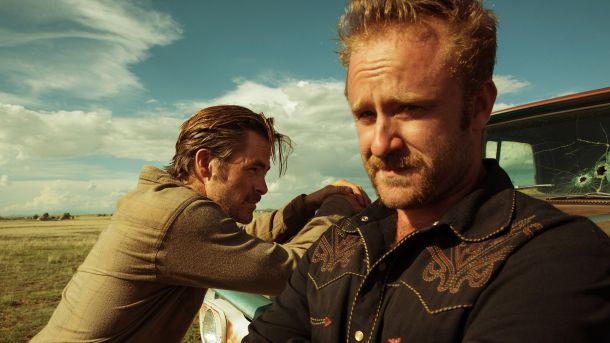 9. Hell or High Water (dir. David Mackenzie)
9. Hell or High Water (dir. David Mackenzie)
Hell or High Water is a modern western that isn’t afraid to get into the details of the financial situation in Texas after the 2008 economic crash. The film is bolstered by strong performances from Chris Pine, Ben Foster, Jeff Bridges, and — in one short scene — Margaret Bowman as a wickedly funny, scene-stealing waitress. The characters are beautifully written and you care about the protagonists’ plight because the film utilizes the horrible financial meltdown that many Americans suffered in 2008 as a backdrop, giving Texas a dead, almost post-apocalyptic vibe. The film has a “stick it to the man” attitude that is capitalized on in the representation of the bank robbers and the lawmen. There are also some humorous jabs at gun-owning wannabe vigilantes; I let out a chuckle when, at a bank robbery gone wrong, our bank robbers are chased by bystanders who want to take the law into their own hands. Part No Country For Old Men, part The Big Short, the film is a brilliant thriller that is one of the best examples of pure entertainment released in the last year.
— Stephen Shea
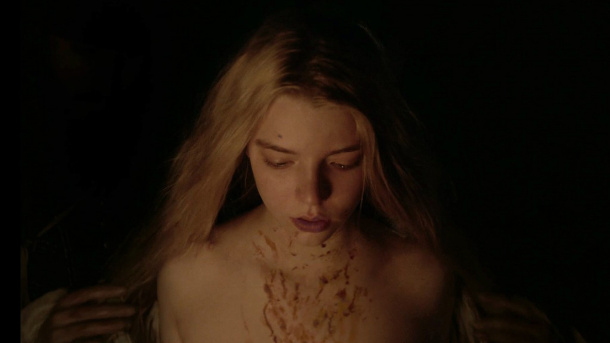 8. The Witch (dir. Robert Eggers)
8. The Witch (dir. Robert Eggers)
The Witch is the cinematic manifestation of the Puritan nightmare. Plot is secondary to atmosphere, character, and style as director Robert Eggers raises tension and terror. What results is a slow-burn horror film that never bores; incredible imagery, a riveting soundtrack, and outstanding performances keep engagement high, even when not much is happening. Special care was taken to be historically accurate as well — the dialogue is spoken as it would have been in the 17th century time period and even the young children do an incredible job of delivering the antiquated style of speech. The sets in the film appear handcrafted, as the computer generation is shunned in favor of detailed makeup, choreographed movement and camera tricks in order to create mystical images. The film borrows very little from past horror films and practically invents an entirely new style of brutality within the genre, while ironically being quite subdued in terms of plot. But the payoff to the tension is anything but subdued. This film is filled with images that will never leave your head, not just because of their visual construction, but because of their context. The movie’s conclusion is positively incredible and solidifies the film’s status as one of the best horror films of all time.
— Joshua Wieder
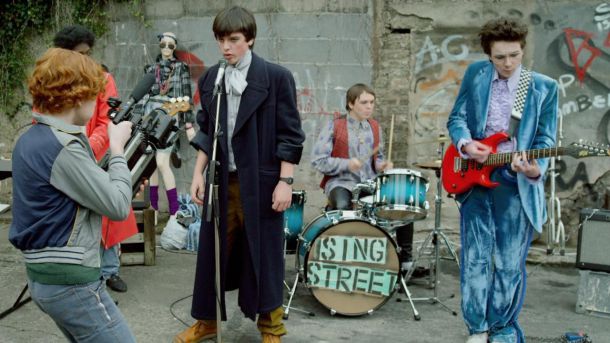 7. Sing Street (dir. John Carney)
7. Sing Street (dir. John Carney)
Sing Street is loud, proud, and aching to be heard. This bittersweet drama focuses on Conor (later called Cosmo), a boy in 1980s Dublin who is just trying to survive his turbulent household and his oppressive new school. In an attempt to impress the beautiful stranger, Raphina, Conor invites her to shoot a video for his band. There’s just one problem, though: he doesn’t have one. After slapping together a few talented misfits, the band “Sing Street,” is born. Director John Carney (Once, Begin Again) once again draws attention to the tenderness of song as Conor uses his struggles as inspiration for his music. Carney sympathetically portrays many of the characters, including a few that we originally view as villains. Thus, the audience is given a certain amount of understanding that tugs on the heartstrings as we watch these characters strive for what they believe in: music. The soundtrack is amazing, and by the end, I was left believing in the journey of the underdog.
— Mikayla Mislak
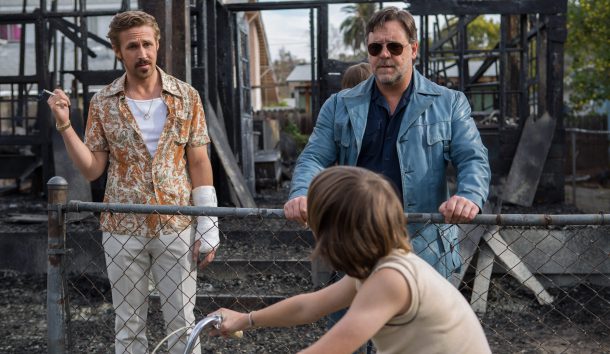 6. The Nice Guys (dir. Shane Black)
6. The Nice Guys (dir. Shane Black)
Have you ever felt upset after seeing a movie because you loved it so much and didn’t have the foresight to empty your schedule for the rest of the day so you could walk right back into the theater and watch it again and again until the manager kicks you out? Well, I have. It was how I felt walking out of the The Nice Guys, writer/director Shane Black’s return to R-rated form. Set in 1977 Los Angeles, the sleazy, smog-infested porn capital of the country at the time, this laugh-a-minute detective mystery throwback stars Ryan Gosling and Russell Crowe as two PIs who try to uncover the conspiracy behind the crime of the century while also rediscovering their own self-worth.
There is a lot to admire about this movie. The characters are flawed, funny, and well-realized, the story is clever, cool, and unpredictable, and the images on screen are dripping with the stylishness of the ’70s. The best way I can describe it would be Sherlock Holmes meets Boogie Nights — an unexpected but winning combination. Gosling and Crowe’s spot-on performances and endlessly entertaining banter only enhance an already fun and hilarious set of circumstances in what I believe to be the best screenplay of 2016. If you see any mid-budget coming-of-age mystery buddy cop action-comedy full of nudity, excessive violence, and a giant talking bee, make sure it’s this one.
— PJ Yerman
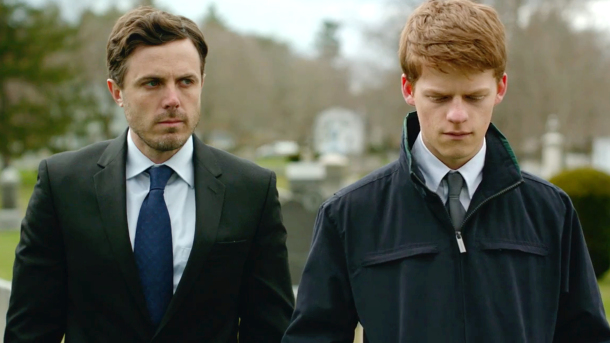 5. Manchester by the Sea (dir. Kenneth Lonergan)
5. Manchester by the Sea (dir. Kenneth Lonergan)
I don’t think I’ve ever seen a movie quite like Manchester by the Sea before. It’s a one-of-a-kind blend of humor and heartbreak. Casey Affleck and company aid Kenneth Lonergan’s ingenious writing and directing with their commanding performances, giving the film a starkly realistic feel. Affleck’s unique commitment to and understanding of his craft is displayed through his depiction of a quietly charismatic man, ruthlessly chained down by his past. We also get a peek at what is sure to be a bright future for 20-year-old Lucas Hedges. His character’s wit and wounds intertwine into a beautiful mess, showcasing not only the film’s capacity to be multidimensional, but also Hedges’s ability as an actor. Above all, this film encapsulates emotional anxiety with the most graceful subtlety that I have ever seen on the big screen. I highly recommend Manchester by the Sea to anyone who is up for an emotional roller coaster and appreciates great filmmaking. I personally haven’t seen anything else directed by Lonergan, but I sure will be on the lookout now.
— Max Schwarz
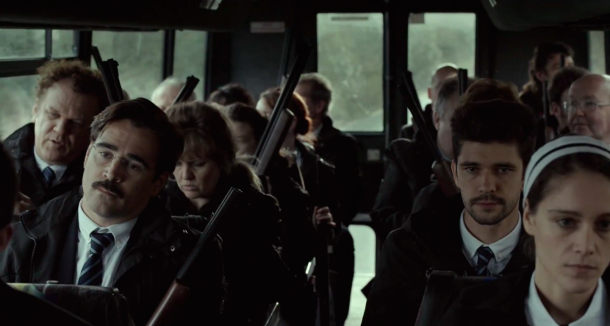 4. The Lobster (dir. Yorgos Lanthimos)
4. The Lobster (dir. Yorgos Lanthimos)
Absurdist comedies are incredibly hard to pull off. Finding the balance between humor, character and heart can be a delicate act, but The Lobster manages all of this with ease. Commenting on modern romance and the ridiculous nature of ritual, Yorgos Lanthimos’s first english language feature is a masterclass in contemporary comedy. The humor is rooted not in the classic style of comedy, with punchlines and specific editing choices. Instead, what drives the comedy is the ridiculous nature of the setting and the absurd rules that the society of the film considers normal; this is expressed through the use of music and the very nature of the premise. The movie’s strange tone works excellently, and the looser structure of the piece allows it to blossom as a story ultimately about the characters’ individual journeys. Supported by knockout performances from Colin Farrell, Ben Whishaw and Rachel Weisz, comedy has rarely been weirder or more compelling.
— Elizabeth Esten
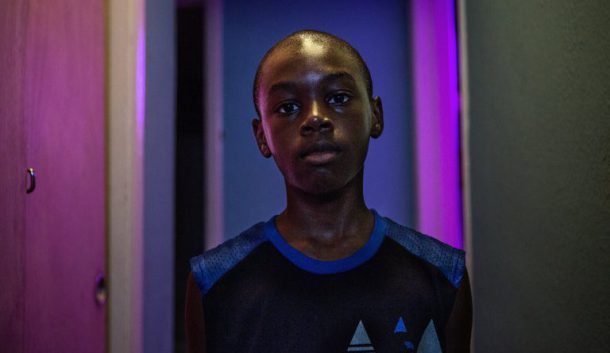 3. Moonlight (dir. Barry Jenkins)
3. Moonlight (dir. Barry Jenkins)
Moonlight is an important film for many reasons. Adapted from an unproduced play, it’s a timeless coming-of-age story told in a stunningly contemporary way. Everyone’s seen films that deal with homosexuality, but they almost always come from the point of view of a white protagonist. Moonlight separates itself from the rest of the pack by dealing with what homosexuality means in the black community. Split into three sections of the protagonist Chiron’s life, the script is expertly performed by veterans and newcomers alike. Each actor portraying Chiron embodies the physical and emotional changes his character undergoes as a result of his experiences. The ensemble cast is impeccable, and the acting carries all the nuance and detail you might expect from a theater production. Moonlight is also presented in a unique and beautiful way. In his own distinct perspective, director Barry Jenkins has captured Miami like no one before him, showcasing love, death, grief and insecurity with colorful flourishes and a transportive orchestral score. It’s a film with a profound impact that deserves every bit of recognition it receives.
— Justin Madore
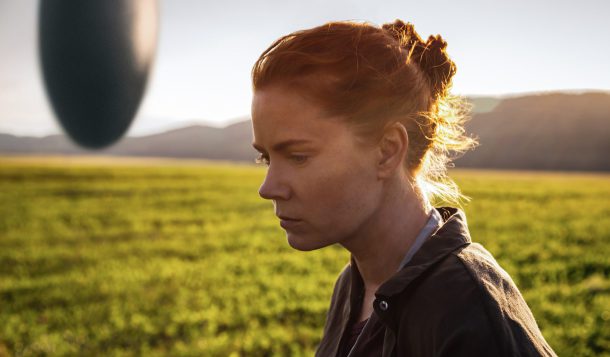 2. Arrival (dir. Denis Villeneuve)
2. Arrival (dir. Denis Villeneuve)
With Arrival, director Denis Villeneuve creates an intellectual science fiction film that stands with the best of the genre. Essentially functioning as The Day the Earth Stood Still for a new generation, the story plants a linguist (a wonderfully nuanced Amy Adams) in the middle of a chaotic international conundrum after a series of alien ships come to rest at random spots across the globe. The film omits the grandiose spectacle, stock characters and bombastic action commonly found in movies of this kind, instead handling the weightiness of the situation with Villenueve’s signature sense of quiet awe and understated portent. In a welcome twist of expectations, communication and language are treated as the inherently dramatic plot elements they have the potential to be. Villeneuve shows his Tarkovsky influences, portraying language as a three-dimensional concept and using non-linear editing techniques to mirror the story’s metaphysical sense of time. It is a transcendent experience — emotionally satisfying, but also enormously thought-provoking in its themes of acceptance, determinism and controlling the uncontrollable. It points to open-mindedness and looking beyond the immediate for solutions, and in this time of uncertainty, sweeping disillusionment and broken discourse between violently feuding ideological factions, I feel that Arrival is exactly the film we need right now.
— Byron Bixler
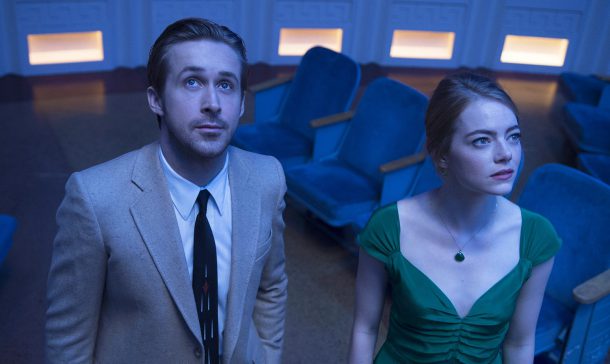 1. La La Land (dir. Damien Chazelle)
1. La La Land (dir. Damien Chazelle)
When you sit down for a movie like La La Land, you don’t simply watch it — you experience it. Every part of the film is impeccably crafted and incredibly well-executed. All of the performances are extremely believable, and Ryan Gosling and Emma Stone play relatable characters. Even John Legend, who has a minor role in the movie, is unexpectedly great. The best example of the movie’s level of quality is the opening sequence in which actors sing and dance to one of the many great songs on the soundtrack, “Another Day of Sun.” Everything from the choreography to the camera movements is amazing, as the scene perfectly sets the tone for the rest of the film. Right from the beginning, director Damien Chazelle makes it extremely clear that he wants the audience members to have fun and enjoy themselves. By setting that expectation for the audience, he’s able to throw a couple of surprises into the story that caught me off guard. Chazelle displays great passion for what he’s made and showcases loving sentiments for L.A. and the old school Hollywood musical. At the end of the day, La La Land is a love letter to everything that makes movies great and as such, it needs to be seen by everyone.
— David Friedfertig
- More


